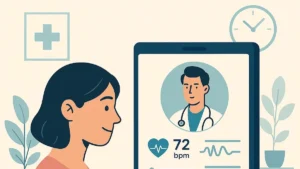
Sexual dysfunction or problems are defined as any issues during the sexual response cycle that inhibits the satisfaction of any man or couple during sexual activity.
There are 4 main responses that a person should exhibit during sex:
- The Excitement Phase
- The Plateau
- The Orgasm
- The Resolution
However, some people can have problems with one or more of these responses.
Research shows that sexual dysfunction is a common problem, but people often may be hesitant to discuss it. 43% of women report such issues, but only 31% of men report having sexual problems. They do so with a degree of hesitancy and difficulty, despite the problem being more prevalent among men. It is important to remember that most cases of male sexual health problems are treatable.
Causes of Male Sexual Health Problems
Two main areas that result in problems of male sexual health are: psychological and physical.
- Psychological causes can include concerns about sexual performance, depression, guilt, stress or anxiety, relationship or marital problems, or any past sexual trauma.
- Physical causes can include heart and vascular diseases, diabetes, alcoholism, drug abuse, neurological disorders, hormonal imbalance, or any chronic diseases like liver or kidney failure. Some medications, such as antidepressants, can also have sexual dysfunction side effects.
Types of Male Sexual Health Problems
Different types of disorders can occur under the umbrella of male sexual health.
Ejaculation Disorders
There are a few types of ejaculation disorders that can affect men. These can include:
- Retarded or inhibited ejaculation is when ejaculation occurs slowly or at a delayed pace, despite the presence of sexual desire and stimulation.
- Premature ejaculation occurs before or right after penetration.
- Retrograde ejaculation is when the ejaculate doesn’t pass through the urethra and out of the penis during orgasm. Instead, it is forced the opposite way into the bladder.
Inhibited or premature ejaculation is often the result of psychological factors. It can be attributed to various reasons, such as a lack of attraction, past traumatic events, repressed sexuality, and guilt associated with sex. Premature ejaculation can also occur in men when they are nervous about how they will perform during sex. Some side effects of certain medicines can also affect ejaculation.
Retrograde ejaculation usually occurs in males who have diabetic neuropathy. This can create problems with the bladder’s nerves, causing the bladder neck to open and letting the ejaculate flow backward. It can also occur after an operation on the prostate or bladder neck. In some rare cases, abdomen operations can also cause retrograde ejaculation. Some medications such as treatment for mood disorders, can result in problems with male sexual health.
Erectile Dysfunction
Erectile dysfunction is commonly known as impotence, defined as the inability to maintain and/or attain an erection appropriate for intercourse. There are different reasons why this common male sexual health problem can occur, such as:
- Diseases that affect blood flow, such as atherosclerosis
- Nerve disorders
- Psychological issues such as performance anxiety, stress, and depression
- Injuries to the penis
- Chronic illness
- Certain medications or drugs
- Peyronie’s disease
Inhibited Sexual Desire
Inhibited sexual desire is also known as the loss of libido. It refers to the decrease in interest or desire for sexual activity. Reduced libido can be a result of psychological or physical factors. It can also occur due to low levels of testosterone hormone or medical illnesses such as high blood pressure and diabetes.
Even some medications like antidepressants, can cause an inhibition of sexual desire. Such male sexual health issues can also be caused by psychological problems such as depression, anxiety, or relationship difficulties.
Diagnosis of Male Sexual Health Problems
To diagnose male sexual health problems, doctors usually do a thorough history check of symptoms and a physical examination. They can also prescribe tests to rule out any physical medical problems contributing to the issues. If need be, they can also refer to specialist health professionals like urologists, sex therapists, or counselors. This can help them determine the root cause of the problem and develop the right treatment plan for the patient.
Treatments for Male Sexual Health Problems
Cases of sexual dysfunction can be treated by addressing any psychological or physical problems that may be causing the issue. There are many treatment strategies that a doctor can opt for to treat such conditions. They can include:
- Treating the physical problems that could contribute to the male sexual health problem.
- Medications such as Viagra, Staxyn, Stendra, Cialis, and Levitra can help with erectile dysfunction. They work by increasing blood flow to the penis. Other drugs like Promescent can also treat premature ejaculation. Topical sprays containing lidocaine can be applied to the penis. These sprays reduce the sensitivity of the penis and provide a greater degree of control over ejaculation.
- Hormone Therapy can be conducted to balance low levels of testosterone.
- Psychological Therapy with a trained counselor can help with psychological issues like past trauma, anxiety, guilt, or fear, which may impact sexual function.
- Mechanical Aids such as penile implants and vacuum devices can also help men with erectile dysfunction.
- Communication and education about sex, sexual behaviors, and responses can also help men overcome their anxieties about sexual performance. Creating an open dialogue between partners can help address concerns and needs, leading to a healthier sex life.
- Male sexual health problems are prevalent but can go untreated due to the stigma attached to them. It is essential to seek help for such issues because effective treatment plans can improve a person’s sexual health.








